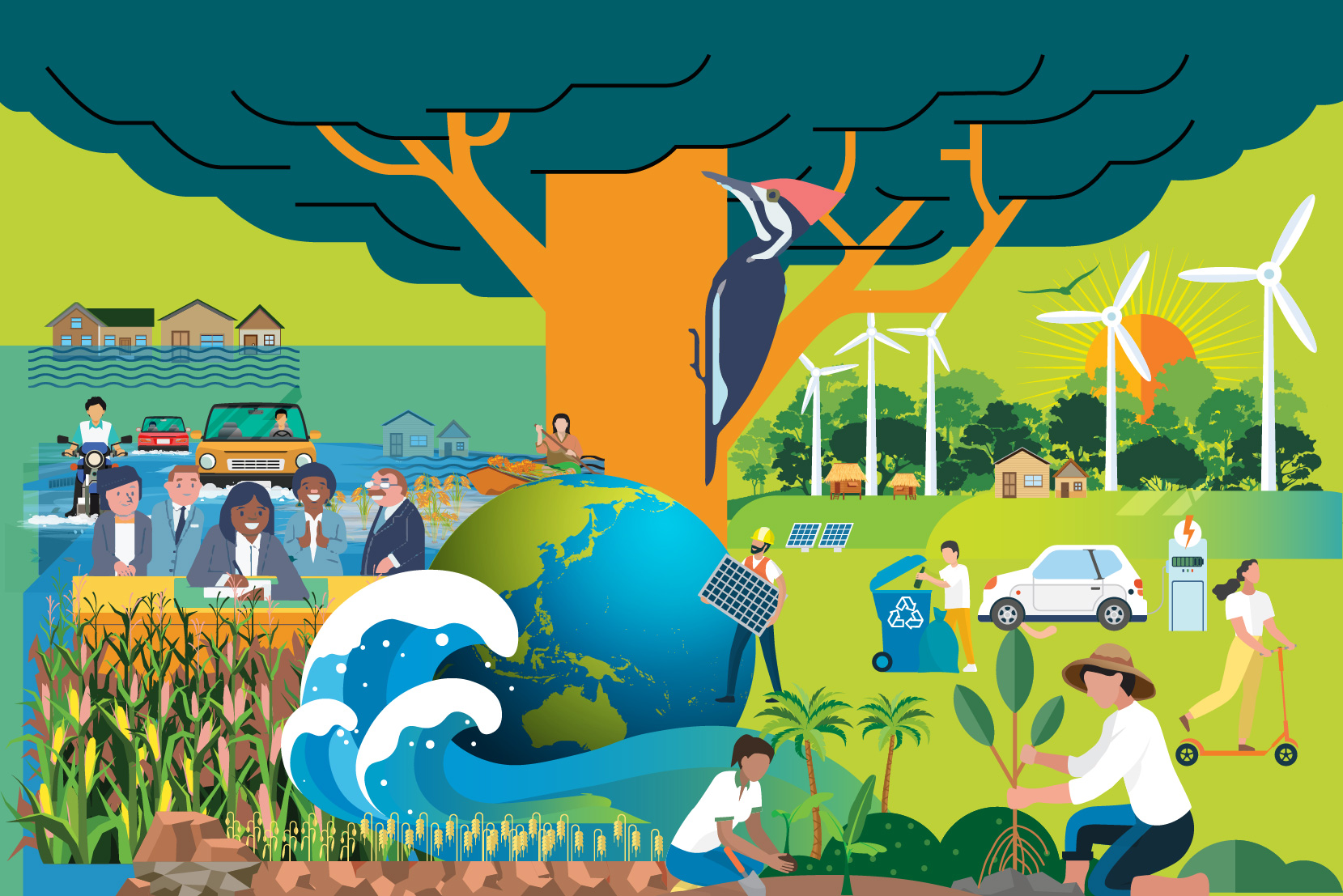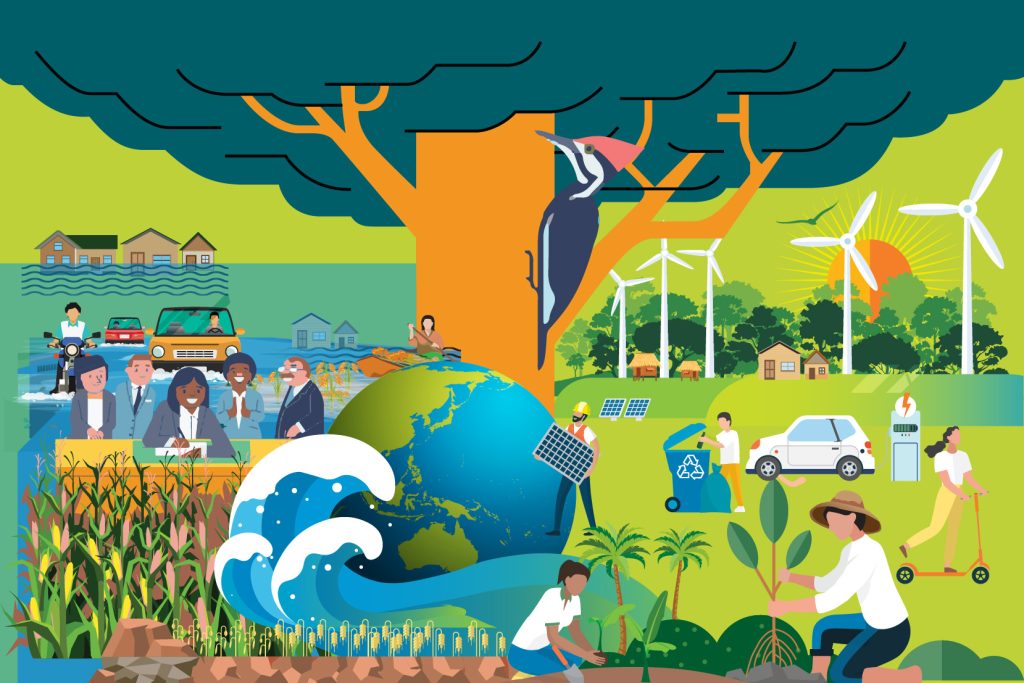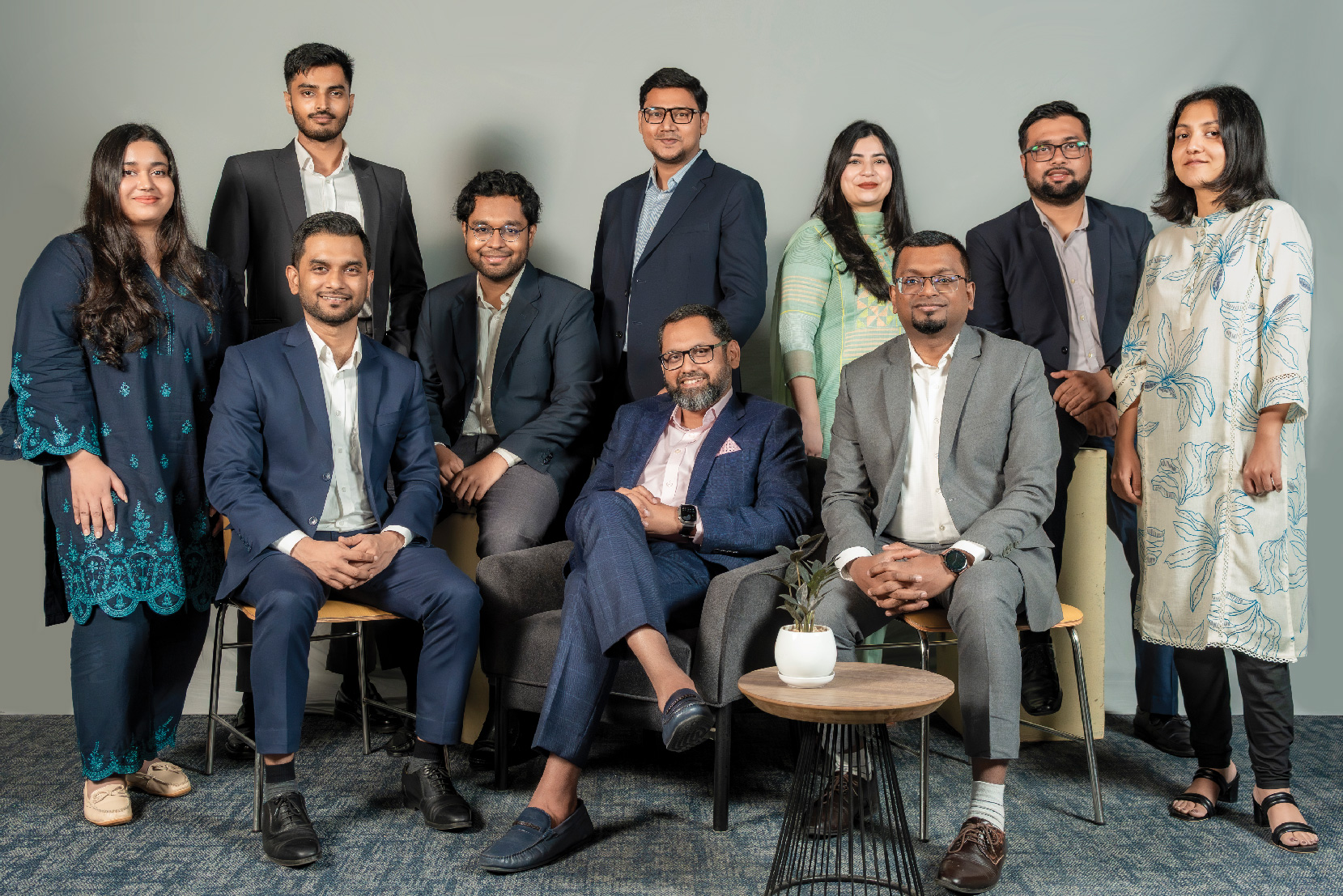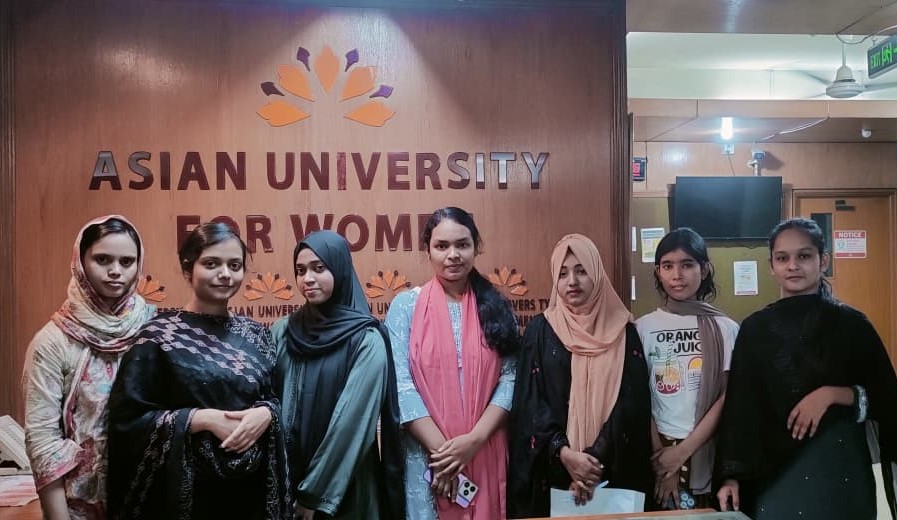How today’s STEM graduates can help battle climate change for a greener Bangladesh.
With news coming up such as funding cuts to scientists, the spread of misinformation in science, cuts to aid, and big banks exiting their climate alliances, it is indeed a difficult time for today’s science, technology, engineering and mathematics (STEM) graduates to be hopeful about contributing their knowledge to climate change. But as we learn in climate sciences, the only way forward is resilience to whatever comes up in this chaotic and ever-changing world.
STEM grads from Bangladesh come from one of the most climate-vulnerable nations, so it is first and foremost in our own interest to contribute to this field, as we have a unique opportunity to apply our own expertise in meaningful ways that can directly impact millions of lives, while also advancing a rich and multi-sectoral career in emerging fields. Our perspectives are unique and specific to our own needs, and that is a very important motivator to remember.
Renewable Energy and Grid Modernisation
One promising field is in renewable energy transition, and it is complemented by Bangladesh’s commitment to reducing greenhouse gas emissions targets. It creates substantial opportunities for STEM graduates in renewable energy sectors, industry, academia and research firms. Solar energy scientists can help design and implement distributed solar systems suitable for rural electrification, rooftop solar PV installations in industry and in the built environment. There is also an opportunity for graduates looking into wind energy to assess and develop wind resources, particularly in coastal areas.
Of course, electrical engineers have a big opportunity here. They can work in factories that are keen on greening themselves, as well as towards smart grid technologies that integrate renewable energy sources with existing infrastructure, improving grid stability and efficiency.
The growing field of energy management systems offers opportunities for computer scientists and engineers to create software platforms that optimise energy distribution, predict demand patterns, and reduce waste. These systems can incorporate artificial intelligence to automatically adjust energy production and consumption based on real-time conditions.
Water Resources and Flood Management
Water is in our DNA. The way our rivers have been an integral part of the way our lives have been shaped, undeniably underscores the need to enhance water resources management, which is often complemented with flood management. Our complex river systems and our geographical setting require sophisticated modelling and management approaches that require hydrology, environmental engineering, and data science. STEM professionals can contribute to developing early warning systems for floods, designing improved drainage infrastructure for urban areas, and creating innovative water treatment technologies to address contamination issues. There also lies the opportunity to develop predictive models that help communities prepare for seasonal flooding, figure out better filtration systems and better resilience models.
The integration of IoT sensors with machine learning algorithms offers exciting possibilities for real-time water quality monitoring and flood prediction. STEM graduates can design and implement sensor networks that provide continuous data on water levels, quality parameters, and weather conditions, enabling more effective disaster preparedness and response. Nature-based solution experts could have the most impact while designing systems that are simple and efficient.
ONE PROMISING FIELD IS IN RENEWABLE ENERGY TRANSITION, AND IT IS COMPLEMENTED BY BANGLADESH’S COMMITMENT TO REDUCING GREENHOUSE GAS EMISSIONS TARGETS. IT CREATES SUBSTANTIAL OPPORTUNITIES FOR STEM GRADUATES IN RENEWABLE ENERGY SECTORS, INDUSTRY, ACADEMIA AND RESEARCH FIRMS.
Sustainable Agriculture and Food Security
Bangladesh has one of the most fertile soils, with acres of land considered arable. This also creates the opportunity for us to produce our own food, in which our culture and identity are rooted. However, climate change is disrupting traditional agricultural practices in Bangladesh. But when there is a challenge, there is an opportunity. STEM graduates can develop climate-resilient farming solutions, design precision irrigation systems that optimise water usage while maintaining crop yields. Biotechnologists can work on developing drought-resistant and salt-tolerant crop varieties that can thrive in changing environmental conditions, of which a lot of work has already been done in Bangladesh.
A big emerging field is in agricultural decision support systems that help farmers optimise planting schedules, fertiliser application, and harvest timing based on weather predictions and soil conditions. These systems can integrate satellite imagery, weather data, and ground-based sensors to provide actionable insights for smallholder farmers.
Plant pathologists and geneticists can collaborate on developing crops that resist diseases and pests that are becoming more prevalent due to changing climate conditions. Meanwhile, soil scientists can work on carbon sequestration projects that not only improve soil health but also contribute to global climate mitigation efforts.
Climate-Resilient Infrastructure
Urban planning and infrastructure development in Bangladesh require innovative approaches that account for climate change impacts. There is an opportunity to design buildings and transportation systems that withstand extreme weather events, as well as work on sea-level rise adaptation projects.
Transportation-focused STEM grads can develop sustainable mobility solutions for urban areas, work towards improving our public transportation systems, and smart traffic management systems to reduce emissions and improve air quality.
Science Communication
As a STEM grad trying to specialise in science communications myself, this arena is close to my heart. With a unique blend of knowledge of ‘hard’ sciences that meet a more nontraditional field for scientists – marketing and communications – this field is becoming increasingly important as we move forward in a world with science being translated into nonfactual interpretations. Science communication can range from writing policy briefs to social media communications, to designing campaigns, and to being one of the first people to create a legacy of science meets art in Bangladesh. This field is one of the most exciting and emerging ones, and graduates need, first and foremost, to have the propensity to communicate the knowledge to the public in a way that evokes emotions to make a positive change.
This field is still very new in Bangladesh; traditional communications jobs require you to have a set of tools that STEM grads might not possess, but change is happening!
STEM GRADUATES CAN DEVELOP CLIMATE-RESILIENT FARMING SOLUTIONS, DESIGN PRECISION IRRIGATION SYSTEMS THAT OPTIMISE WATER USAGE WHILE MAINTAINING CROP YIELDS.
Professional Development and Impact
STEM graduates working on climate change challenges in Bangladesh can expect to develop diverse skill sets that combine technical expertise with practical problem-solving abilities. As climate change is a global issue, the idea should be to develop skills that are open to international collaboration, but also not forget the local context – everything depends on the local context. Siloed thinking is of the past; graduates need to understand how to collaborate across fields that provide exposure to policy, economics, and social science perspectives.
The intersection of climate science, technology, and development work in Bangladesh offers a unique opportunity to apply STEM knowledge in ways that directly benefit vulnerable populations while advancing the global fight against climate change. For graduates seeking meaningful careers that combine technical challenges with social impact, Bangladesh’s climate adaptation and mitigation efforts provide an ideal platform for professional growth and positive change.
Raida A. K. Reza is a doctoral researcher at the United Nations University’s Institute for Integrated Management of Material Fluxes and of Resources (UNU-FLORES), Leibniz Institute of Ecological Urban and Regional Development (IOER), and Technische Universität Dresden.
















